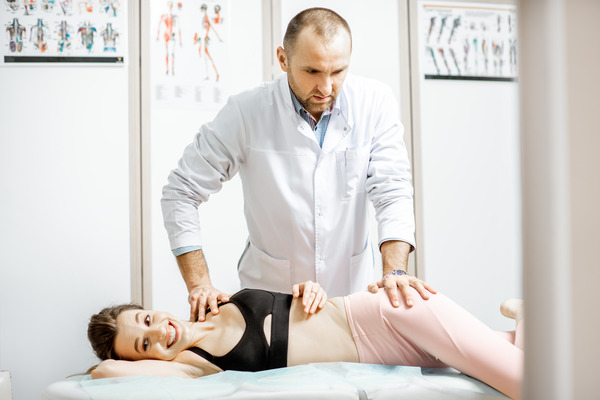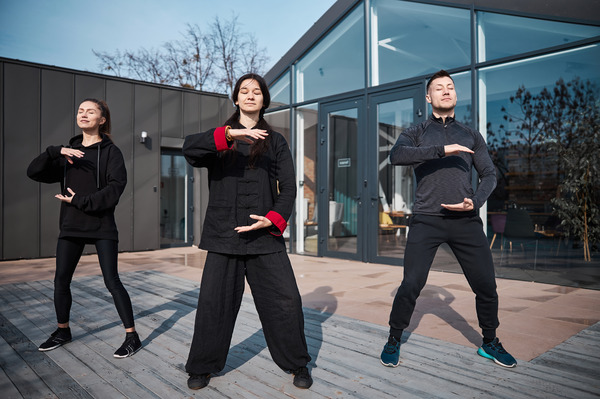
The Health Benefits of Fresh Air and Sunlight
Dr. Jack Herbert
September 8, 2022
- Natural Healing
- April 6, 2023
- No Comment
- 14 minutes read
One of mankind’s oldest therapeutic practices is the use of sunshine to treat illness.
Hippocrates (460 B. C.), “the Father of Medicine,” advocated sending tuberculosis patients to the hills outside the city, so they could get plenty of rest, fresh air, and sunlight. In reality, he utilized what seems to be a fairly modern treatment for this illness. The Greeks used sunlight for treating many other diseases as well. (1)
Before the development of antibiotic therapy for tuberculosis, sanatoriums used fresh air and sunlight to combat the global pandemic.
Florence Nightingale (1820-1910), the founder of modern nursing, was an early proponent of the healing value of fresh air and sunlight. As stated in her book “Notes on Nursing” “It is the unqualified result of all my experience with the sick, that second only to their need of fresh air is their need of light… And that is not only light, but direct sunlight they want.” (2)
Fresh air and sunlight have been shown to offer numerous health benefits.
The best-known benefit of sunlight is the production of vitamin D when sunshine interacts with our skin. Some of the benefits of vitamin D are:
-
Strengthening bones
-
Strengthening muscles
-
Support the immune system
-
Support oral health
-
Help prevent type 1 and type 2 diabetes
-
May Help Depression
-
May help treat hypertension
-
Possible reduction of the risk of certain cancers (3)
-
reduces the risk of multiple sclerosis.
How much sunlight do we need for the photosynthesis of vitamin D?
Direct exposure to sunlight can increase the body’s vitamin D supply as well as offer other health benefits. Try to get direct sunlight exposure several times a week (approximately 10 minutes for people with lighter skin tones and up to 25 minutes for people with darker skin tones). The spring and early summer, between 9 a.m. and 3 p.m. are the best times for sun exposure to obtain vitamin D. Some authorities feel that early morning sun exposure is more beneficial than sun exposure later in the day. Wear a hat to protect your ears and face from sunburn. When you’re finished sunbathing, or if you don’t want to sunbathe, you can sit in the shade and get the benefits of daylight for your eyes and the benefits of breathing fresh air. Never look directly into the sun. Don’t sunbathe if it’s too hot outdoors, and remember to sunbathe in a non-burning safe fashion. If you’re going to be exposed to direct sunlight for longer than the recommended time for your skin type use sunscreen. For more information on the benefits of sun exposure and how to sunbathe safely read “The Healing Power of the Sun” by Richard Hobday Ph.D.
Because there are some contraindications to direct sunlight exposure, such as taking certain drugs, discuss your medications, skin type, and what is best for you with your doctor and/or a dermatologist.
There may be other benefits from direct sunlight exposure other than vitamin D production
Some of the benefits include:
-
Lower blood sugar (4)
-
May protect against certain cancers such as:
-
Breast cancer, colon cancer, and prostate cancer (5)
-
Lower blood pressure
According to the Journal of the American Heart Association, Sunlight exposure appears to lower blood pressure; insufficient exposure to natural ultraviolet radiation and/or active avoidance of sunlight may be new risk factors for hypertension. (6)
-
Help prevent autoimmune diseases such as multiple sclerosis
-
Treating skin disorders such as psoriasis
-
Increase blood levels of natural opiates called endorphins (7)
The benefits of sun stimulation through the eyes
The pineal gland is an endocrine gland that is located in the brain. It produces the hormone melatonin. Melatonin regulates our wake-sleep cycle, which is important for proper sleep. Melatonin is produced during the dark hours, which signals sleep, and stops being produced upon optic exposure to daylight, which signals wakefulness. When people are exposed to sunlight or very bright artificial light in the morning, their nocturnal melatonin production occurs sooner and they enter into sleep more easily at night, which promotes better health and healing.
Bipolar depression patients were shown to recover approximately four days faster when placed in rooms with an eastern exposure and early morning sunlight than when placed in rooms with a western exposure, according to chronotherapist Francesco Benedetti MD and his colleagues. (8)
Another study found that depressed patients that were placed in bright and sunny rooms had an average stay of 16.9 days compared to 19.5 days for those in dull rooms. A difference of 2.6 days. (9)
The results of another study at Michigan State University indicate that light therapy may improve sleep quality for cancer survivors. (10)
Lack of exposure to daytime light was revealed to be a risk factor for low mood, insomnia, and depressive symptoms in a study conducted by Monash University and published in the Journal of Affective Disorders. (11)
Additionally, when sunlight reaches your eyes, it stimulates parts of your retina, signaling your brain to begin producing serotonin. Serotonin can improve mood and promote mental clarity and calmness. Low levels of serotonin have been linked to seasonal affective disorder (SAD), also known as “seasonal depression” or the “winter blues.”
To summarize, optical exposure to sunlight can help
-
Promote Better Health and healing
-
Insomnia, including improved sleep quality for cancer survivors
-
Depression, including bipolar depression and seasonal affective disorder (SAD)
-
Improve mood and promote mental clarity and calmness
Some of the benefits of fresh air are:
-
It improves the cleansing action of your lungs
-
it can boost your mood
-
it can lower your heart rate
-
Increase energy levels
-
Improve digestion (12)
-
Help prevent respiratory infections. The conclusion of a study in China found that crowded dormitories with low out-to-indoor air flow rates are associated with more respiratory infections among college students. (13)
-
According to “Science Daily” fresh air has a positive effect on our brains and well-being. (14)
We need fresh air and sunlight like we need food. Try to spend more time outdoors, and when you’re indoors, open the windows and blinds to let the sunlight and fresh air in.
For more information on the benefits of fresh air and sunlight, read the book I mentioned earlier in this article, “The Healing Power of the Sun” by Richard Hobday, Ph.D. Dr. Hobday’s book contains a wealth of information. On page 121 (TABLE 4), he lists recommendations for safe sunbathing. If you’re planning to sunbathe for health, you should be familiar with this table of recommendations.
Also, on page 129, Dr. Hobday discusses the book “Sunlight Could Save Your Life” by Dr. Zane Kime, an American nutritionist and sunlight therapist. According to Dr. Kime, sunbathing can have a negative effect on those who are on a high-fat American diet or do not get an abundance of fruits and vegetables. So, for this reason, if you are planning to sunbathe for health you should consider consulting a nutritionist.
DISCLAIMER:
If you’re planning to sunbathe for health seek the advice of a qualified healthcare professional.
References:
1. https://journal.chestnet.org/article/S0096-0217(16)30299-0/fulltext
3. https://www.health.harvard.edu/cancer/enough-vitamin-d-may-protect-against-some-cancers
4. https://pubmed.ncbi.nlm.nih.gov/30759251/
5. https://www.sciencedirect.com/science/article/abs/pii/S0959804912008854
7. https://www.ncbi.nlm.nih.gov/pmc/articles/PMC2290997/
9. https://pubmed.ncbi.nlm.nih.gov/8882914/
12. https://stmarysmaine.com/the-air-out-there-discover-the-health-benefits-of-simply-going-outside/
13. https://pubmed.ncbi.nlm.nih.gov/22110607/
14. https://www.sciencedaily.com/releases/2021/07/210715103025.htm
Post Views: 1,450



